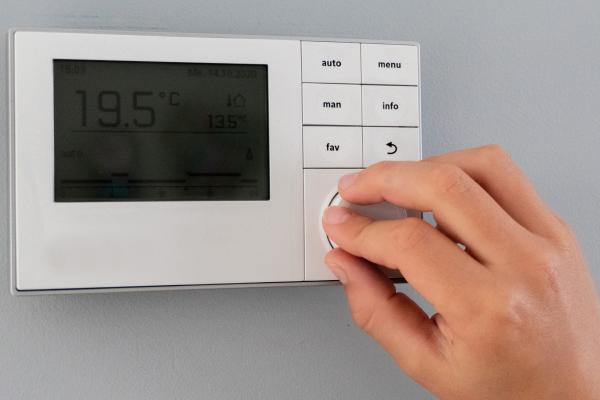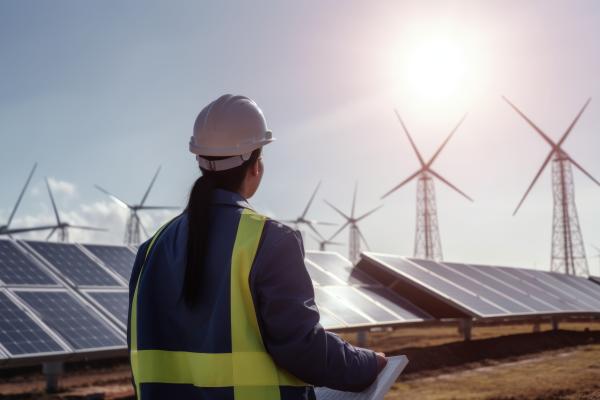
What makes people adopt pro-environmental behaviour? A JRC-led study published in Energy Policy, addresses a pressing dual challenge – combating climate change through behaviour change and tackling energy poverty. As climate change impacts intensify, addressing energy poverty becomes crucial for building resilient communities and fostering a sustainable future.
The study aims to bridge these concerns by evaluating the efficacy of a traditional economic intervention targeting low-income households- a financial measure, combined with a novel behavioural instrument—a boost. This boost functions as an education-like intervention, empowering individuals to make informed choices by fostering their competencies.
Recent EU initiatives, such as the revised Energy Efficiency Directive (EED recast 2023/1791) and the Second Recommendation on Energy Poverty, highlight the importance of addressing energy poverty through targeted measures. The EED mandates Member States to implement financing measures for those affected by energy poverty, emphasising the importance of making energy efficiency affordable for all.
The Recommendation prioritises multi-aspect strategies, tackling structural inequalities, and promoting vulnerable citizens’ active engagement in the energy transition through measures like behavioural interventions.
The study dives into this context by conducting a laboratory experiment using a modified public bad game. The authors evaluate the impact of a novel boost, aimed to empower citizens’ competence to understand the consequences of their energy actions, combined with a targeted financial intervention.
The results show that the financial intervention alone effectively encourages the adoption of energy efficiency measures, even when less expensive but similarly beneficial options are available, aligning with the EED's focus on targeted financial measures for the energy poor.
The novel behavioural boost, designed to enhance citizens' understanding of the consequences of their actions, did not yield the expected results. This highlights the need for a more comprehensive approach, incorporating multiple behavioural interventions that are rooted more in the social context.
This finding aligns with the need for more socially grounded measures, like Energy Cafés, as suggested in the Recommendation’s Staff Working Document. In fact, in these socially valued spaces, through informal exchanges on the social meaning associated with energy, citizens can enhance not only their energy literacy, but also become knowledgeable of the steps they can take to improve their energy conditions while reducing emissions.
In conclusion, the study not only contributes empirical insights into the efficacy of specific interventions (implemented alone and in combination), but also underscores the importance of holistic approaches that consider financial, behavioural and social aspects. By aligning with the recent EED and Recommendation on Energy Poverty, the findings offer actionable insights for policymakers striving to address energy poverty and promote sustainable energy practices.
Background
The European climate law bounds EU countries to cut greenhouse gas emissions by at least 55% by 2030. The goal, set out in the European Green Deal, is to make the EU climate neutral by 2050: in this context, behaviour change plays a key role. Particularly, it can help to achieve considerable reductions in emissions at relatively low costs.
The Climate Action Pact, an initiative within the European Green Deal, invites people, communities and organisations to participate in climate action. The updated Energy Efficiency Directive (EED recast) highlights the importance to achieve long-term behavioural changes in energy consumption. Additionally, the EED also provides the first definition of energy poverty, recognised as key policy priority.
The EU Save Energy plan takes two-pronged approach: to save energy not only through mid- to long-term structural energy efficiency measures, but also through voluntary changes in short-term energy consumption behaviours.
The EU is strongly committed to ensure that the green energy transition is fair and just, leaving no one behind. Examples are the Commission Recommendations on Energy Poverty (2020 and 2023), the Council Recommendation on ensuring a fair transition towards climate neutrality, and the Regulation of the European Parliament and of the Council establishing a Social Climate Fund.
Related links
Promoting pro-environmental choices while addressing energy poverty
Details
- Publication date
- 27 February 2024
- Author
- Joint Research Centre
- JRC portfolios




